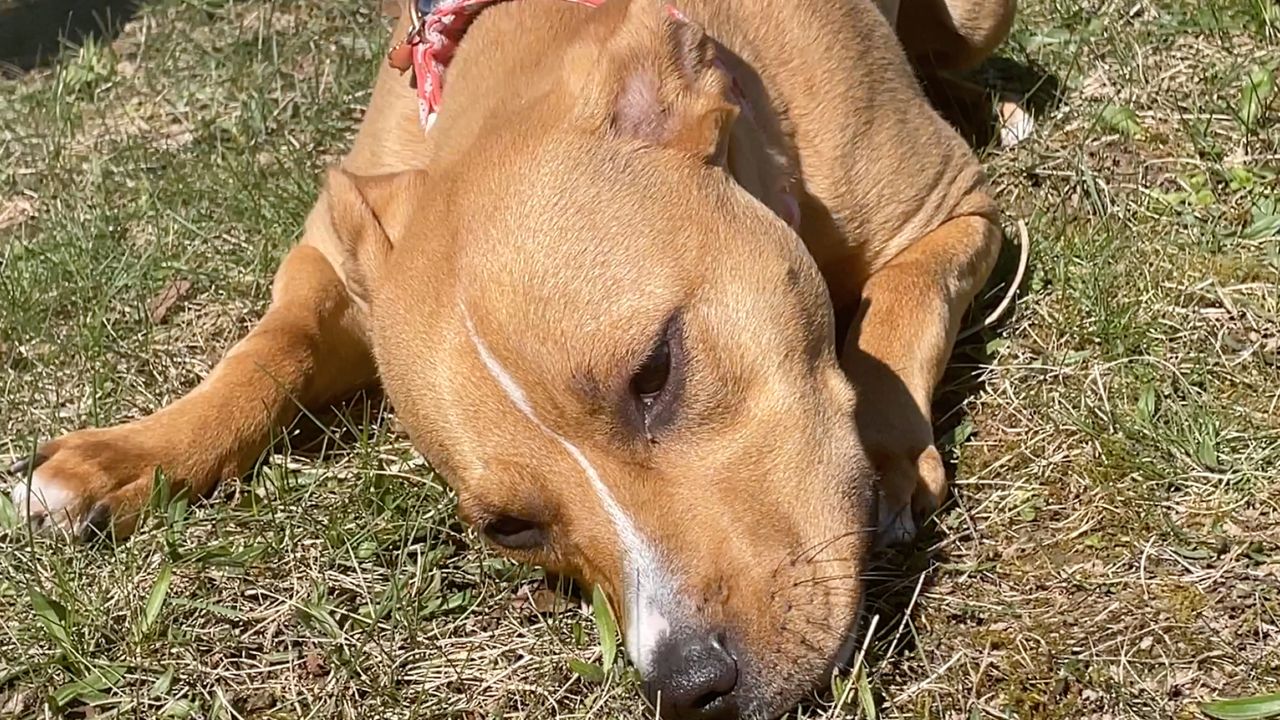ROCHESTER, N.Y. — Nicer weather coming in early this year has been exciting for many New Yorkers, like Sienna Prieto and her new puppy, Roo.
“A lot of early mornings, a lot of walks, but it’s really fun,” Prieto said. “You for to have a cuddle buddy for life. She does a lot of silly things. I mean, Roo is very sassy. She has a good personality.”
But her little girl has hours worth of energy to burn.
“Whenever there’s nice weather, we’re definitely trying to go outside so she can walk around more. In Rochester, you never know. It’s either a rainy day or a super nice day. So we’ve been trying to take advantage of days like this, but you know, then that means for me, that I am like this, stuffed up all day,” Prieto laughed.
An earlier spring has been wonderful for Roo, but harder on first-time pet owners, like Prieto, who struggles with her allergies.
“I definitely start feeling, I would say around February this year,” she explained. “Once it started getting warmer. I think we had a couple of days in February where it was really, really warm, so everything started sprouting again. And I’ve been reading too, that there’s way more pollen this year and I can feel it in the morning.”
Cut grass, dandelions, rainy days, you know it — she’s probably allergic to it.
“I’m allergic to a lot of things,” she said.
To try to avoid some of her congestion, headaches, running nose, or even hives, she’s been taking allergy medication since the third grade.
“I have, my own prescribed medication, and then I go between variations of like allergy, basic allergy relief, and then also, like day and like a night. Like I said, those are doubling down on those really hard days like today,” Prieto explained, “Today was a really strong day for me on my allergies. This morning, I really thought I had like a common cold, but by 12, once my medication hit, I was feeling way better,”
Medication can be one solution, according to clinical director of allergy and immunology at the University of Rochester Medical Center, Dr. Emily Weis, who says she has also seen an earlier uptick in allergy patients so far this season.
“With the earlier spring and the warmer weather, we think about the pollen coming out a little bit earlier and then that being prolonged,” Weis said. “So patients are, it may, you know, in years past or in other years that it is a shorter season, feel like they can get through it in a shorter period of time. But when it’s more prolonged, it can be more bothersome.”
However, there’s some tricks she suggests to help prevent some allergy symptoms.
“Number one would be avoidance, you know, finding out exactly what you’re allergic to and then trying to avoid those triggers,” she said. “So if you’re outside, you think about tree pollen and other environmental pollens being most prominent first thing in the morning. So maybe that would be a time to avoid being outside, doing strenuous work or gardening and that kind of stuff. If you're coming back into the house thinking about showering, doing some sailing rinses, etc., and then things that you can do, especially if you have a lot of eye allergy symptoms wearing sunglasses, if you're outside, if it's pretty windy, wearing a mask, if you have to outside and then, you know, trying to limit what you're actually exposed to. Number two would be talking to your primary care physician about what over-the-counter medications may be most efficient for you. So if you’re having alot of eye allergy symptoms, there’s good eye drops for that. Over-the-counter nasal allergy symptoms, thinking about maybe some nasal sprays. And we have really good non-sleepy antihistamines, so those are some options.”
Lastly, she recommends visiting a specialist, such as herself, to try to pinpoint what you’re allergic to so that they can help you the best.
“Because if you know what you’re allergic to, the avoidance measures, the medications,” she said. “Depending on what works best, can be used. And then we also have other tools in our toolbox that can really help utilize your immune system to help fight off your allergy symptoms or avoid your allergy symptoms altogether.”
These are all tips Prieto has been doing since she was just a kid. Now she’s about to recognize it in her very own pet.
“I think she also has allergies because she always wakes up with a lot of gunk underneath her eyes and sometimes she itches her paws, which those are two big signs in dogs that they also have allergies. So, she’s just like her mom,” Prieto laughed.









